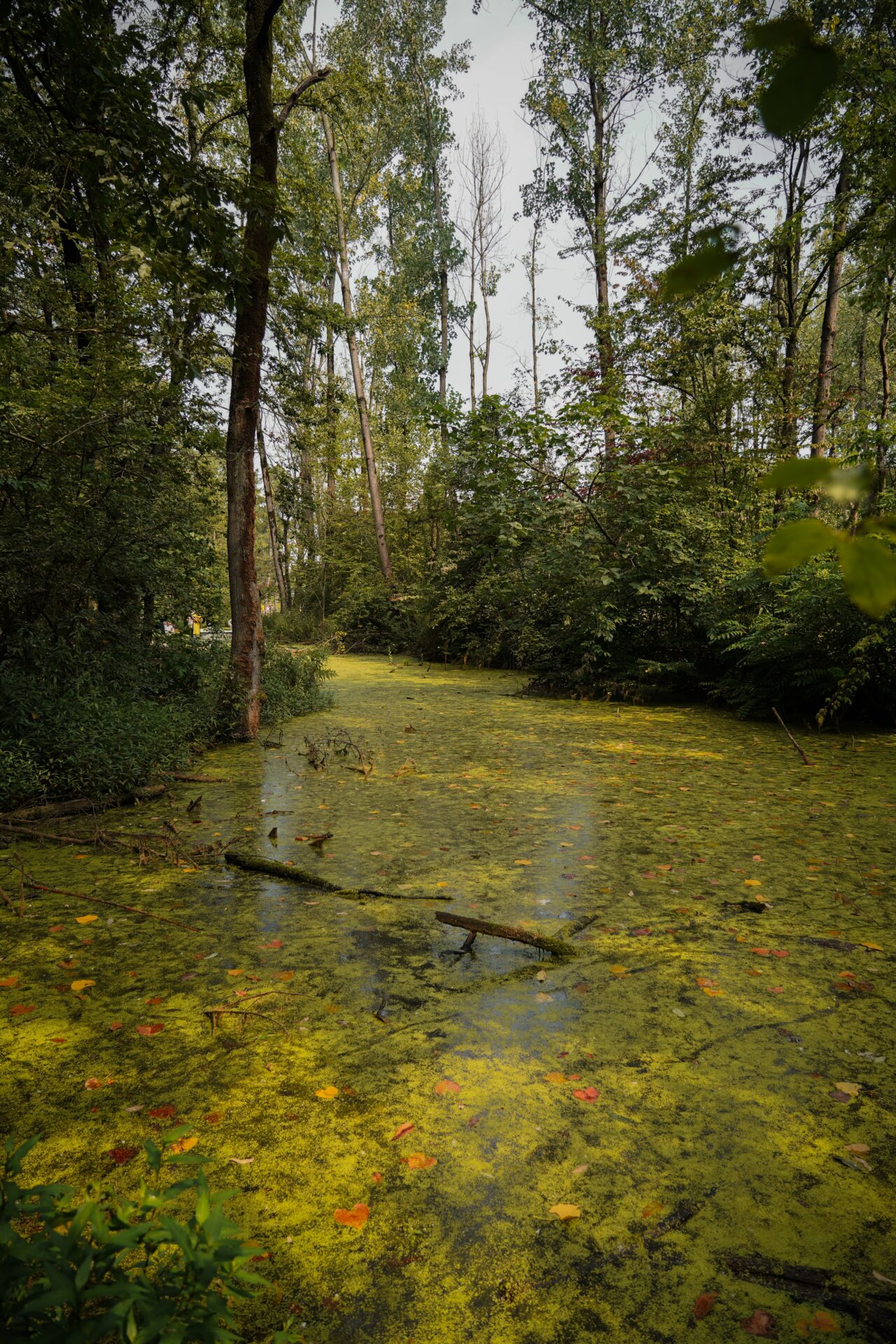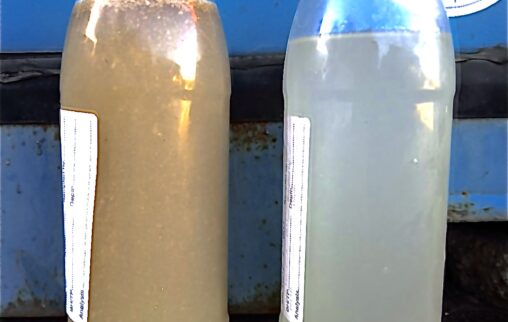Following on from our article on the potential crisis with Phosphate mining and our dependence on such a vital mineral, it’s important to realise that Phosphorus use presents us with a vicious circle. As we use more Phosphate in fertilizer to improve our crops or to feed our animals thus ensuring enough food can be produced for the world’s ever-growing population, the levels of damaging phosphorus pollution increase. Run off from fertilizer use, industry, erosion and natural run off are compounded with the discharge of partially treated or untreated sewage. Phosphorus can overload the waterways’ ecosystem and stimulate plant life, as it would a crop in the ground, to grow too vigorously and quickly. This causes algal bloom to form. A great concentration of algae and microscopic organisms develop on the surface preventing light penetration and a depletion of oxygen in the water – Eutrophication. This literally suffocates aquatic life and has a knock-on effect on the food chain, birdlife and small mammals, not to mention fish stocks which are greatly reduced. Cultural eutrophication happens when human pollution speeds up the process. If nutrients aren’t removed at the treatment plant stage, the introduction of this sewage into the ecosystem has a dramatic effect on freshwater resources and leads to aquatic degradation (1).

A study carried out by the Environment Agency in 2020 on 4,600 rivers, lakes and other waterways found that only 14% of English rivers were of ‘good’ ecological standard and that no river achieved ‘good’ chemical status, suggesting pollution from sewage discharge, chemicals and agriculture are having a huge impact on river quality. These figures show a decline from 2016 when 97% of rivers were judged to have ‘good’ chemical status. (2)


To help maintain a healthy, balanced environment in rivers, lakes and even the seas a safe, ‘green’ solution needs to be found to remove these nutrients before discharge.
To find out more about Phosphate use, the multiple effects on our environment and the simple solutions to this worldwide problem, see our other linked news items Phosphate Part 1
1. britannica.com/science/eutrophication 2. environment.data.gov.uk/catchment-planning
See our Phosphorus page or Get in touch for more information.




